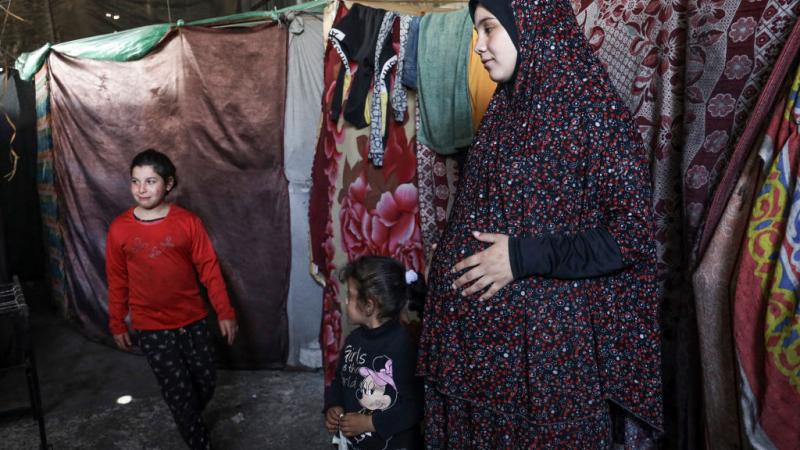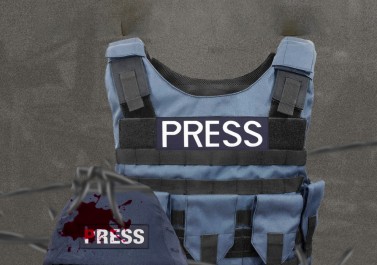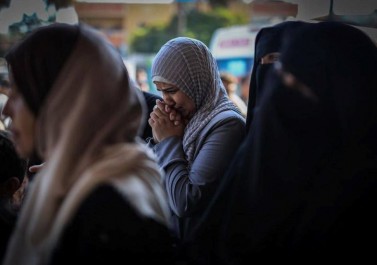:Gaza- Nawa Network- Filastiniyat
Amid mass displacement and the deteriorating humanitarian situation in the Gaza Strip, pregnant women are facing a dual threat: severe malnutrition and lack of basic medical care, all within a collapsed healthcare system and a critical shortage of medical and nutritional supplies.
Field reports confirm that thousands of pregnant women suffer from general weakness, anemia, and complications that can lead to miscarriage or premature birth, due to their reliance on insufficient food aid and the absence of essential supplements like iron and folic acid.
 Nisma Khalil, a displaced woman from Gaza City, was in her seventh month of pregnancy when she began experiencing severe fatigue and frequent dizziness.
Nisma Khalil, a displaced woman from Gaza City, was in her seventh month of pregnancy when she began experiencing severe fatigue and frequent dizziness.
“There’s no nutritious food, no fruits, no milk just canned goods and rice. My body kept getting weaker day by day,” she said.
After days of deterioration, she lost her baby. Her doctor told her the miscarriage was caused by malnutrition and her body’s inability to sustain the pregnancy.
Amina Mousa, currently sheltering in a school in Deir al-Balah, gave birth during the final week of her pregnancy. Her newborn weighed only 2.5 kilograms.
“We had nothing to eat. The baby was born weak and stayed in the NICU for six days,” she said.
Amina was unable to breastfeed due to her poor health, further compounding the suffering for both mother and child.
Samia Al-Agha, six months pregnant and living in a tent for months, said,
“There are no vegetables, no eggs, not even milk just bread and canned food.”
Samia worries that she won’t be able to reach a hospital or find proper medical care when it’s time to give birth.

Inside Al-Awda Hospital, Dr. Raghad Al-Shaer, an obstetrician, described the grim reality:
“Every day, we see cases of pregnant women with severe malnutrition, acute anemia, or premature labor due to physical weakness.”
She added, “Some days, we receive 15 to 20 cases, many of which require blood transfusions or immediate neonatal care.”
Dr. Raghad noted that the hospital is suffering from a severe shortage of medications and supplements, and the medical staff is working under extreme pressure with very limited resources.
She emphasized that some women arrive at the hospital already in critical condition, having had no prenatal checkups since the start of the war.
“We do our best, but without the necessary resources, giving birth has become a dangerous risk for both mothers and their babies,” she said.
With the ongoing siege and border closures, medical organizations are warning of an imminent health catastrophe unless urgent intervention is made to provide essential nutritional and medical supplies for pregnant women, and ensure their safe access to healthcare and delivery facilities.





























